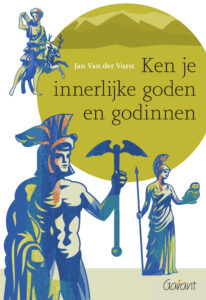That’s Why
We can assist you in 3 areas: Culture, Skills and Self Leadership
You don’t create an organizational culture by decree. It is the articulation of a mindset that translates into actions, business processes and very practical ways of doing things.
To foster a stakeholder-centric mindset, its business relevance must first be made clear.
Next, employees must be able to find a personal connection between their own values and what it means to be oriented towards others. They need to be able to experience first-hand how this can enrich their (working) lives.
Finally, they need to be able to translate the concept of Stakeholder Engagement into day-to-day actions that they agree upon and follow up with each other.
We know from solid scientific research that half of the efforts to strengthen the performance of organizations fail for two reasons. First: senior managers do not behave sufficiently as role models. Second: employees at all levels hang on to and defend the status quo.
This is why a culture effort must be rolled out top-down and needs to explicitly focus on mapping and addressing the current mindset from the start. Research shows us that addressing the latter increases the chances of success four times over.
Understanding the importance of Stakeholder Centricity and implementing appropriate systems and processes are necessary but not sufficient conditions to install a culture. The right mindset must also be translated into a set of skills. In this sense, Stakeholder Engagement is also a verb.

Because Senior Management often has a decisive impact on our projects, we need to be able to connect with the very particular way of thinking of this group of Stakeholders. We accurately mapped out what that way of thinking looks like, through our own research on management committees of Belgian and international listed companies from very different sectors. We incorporated the results of this research in a Engaging Senior Management program.
Our work environment is constantly changing. Our roles and responsibilities are not fixed at all and our life stages follow one another.
As Tolstoi wrote: “Everyone thinks about changing the world, no one thinks about changing themselves.” Or as McKinsey puts it, “Organizations don’t change, people do.” Even the Greeks knew this all too well when they came up with the Olympic gods and goddesses. They give us an insight into the core competences that we can refer to in different situations: a solid guideline for self leadership.
 By locking ourselves into one personality or character type, we are selling ourselves short and limit our capacity for innovation. Therefore, it is important to reflect on all aspects of who we are as a person. This allows us to expand our palette of skills and be able to switch between sets of competences depending on the demands of the situation.
By locking ourselves into one personality or character type, we are selling ourselves short and limit our capacity for innovation. Therefore, it is important to reflect on all aspects of who we are as a person. This allows us to expand our palette of skills and be able to switch between sets of competences depending on the demands of the situation.
Moreover: being mindful of our inner diversity is a basic prerequisite for being mindful of the diversity among our Stakeholders.
Based on this, we developed a training program for self leadership. In addition, we can be your partner in individual coaching and sparring.
